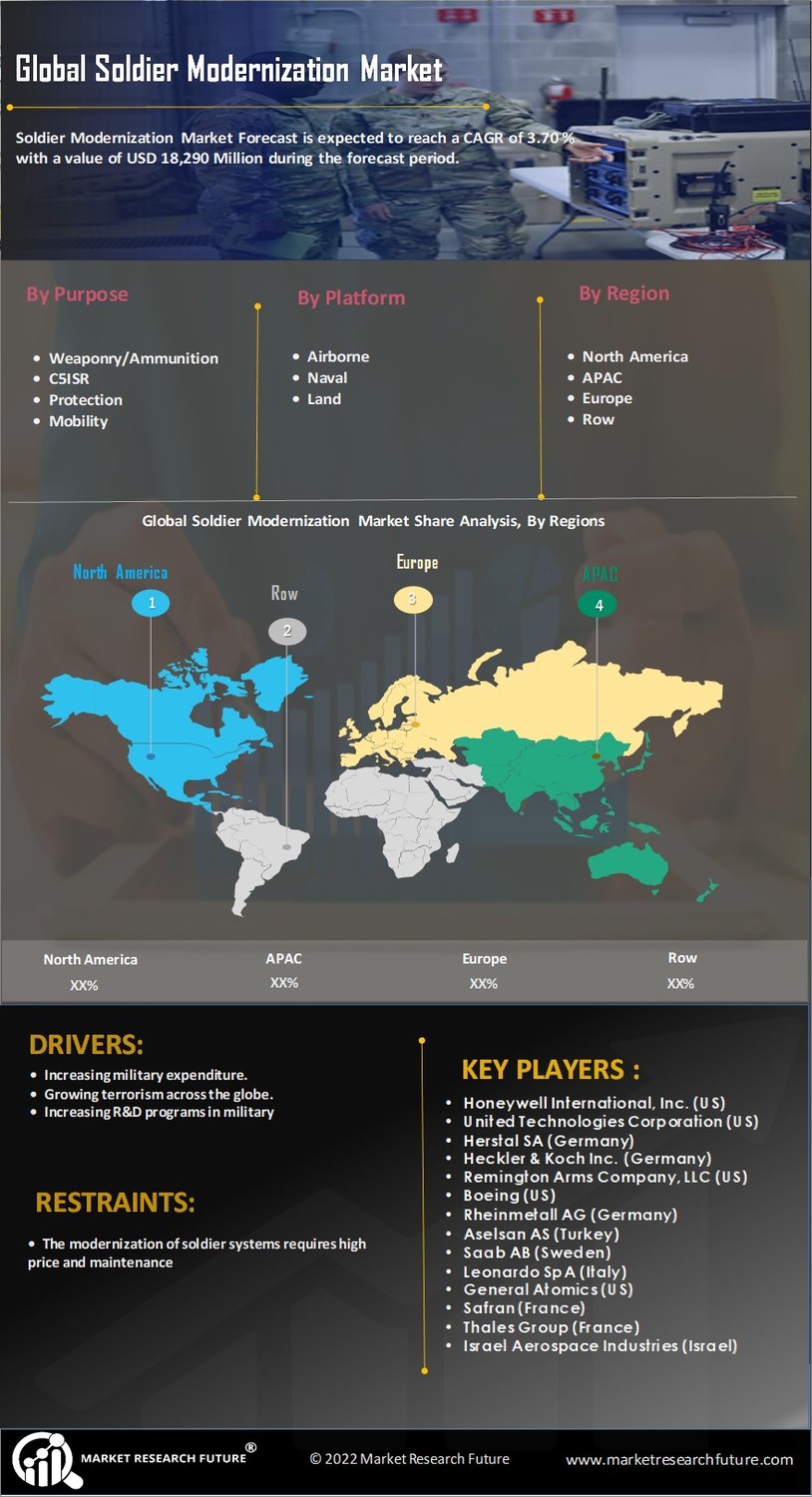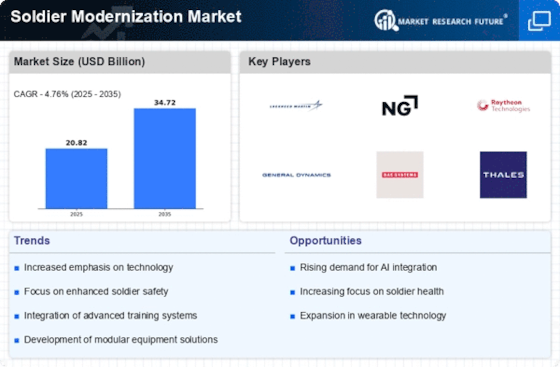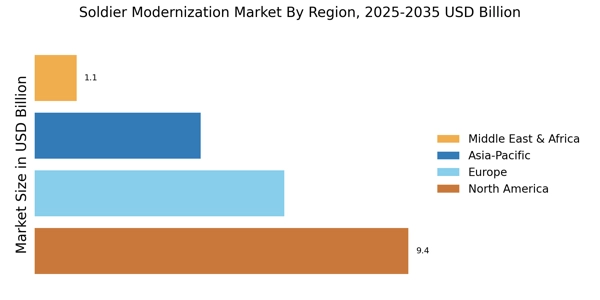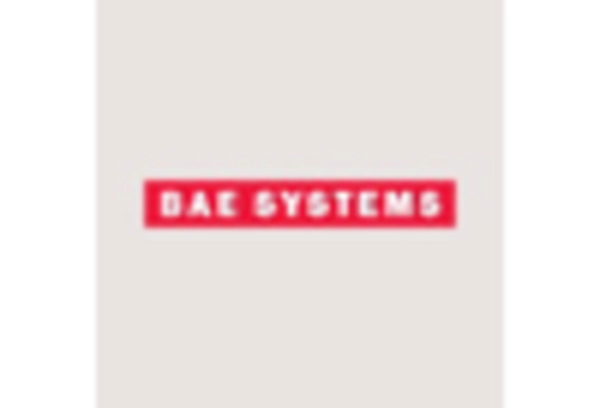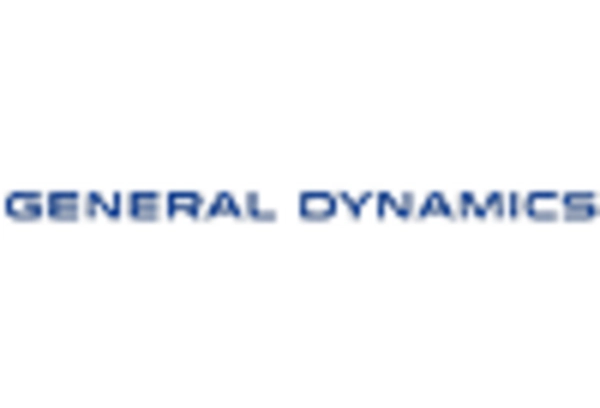Increased Defense Budgets
Rising defense budgets across various nations are significantly influencing the Soldier Modernization Market. Governments are allocating more resources to enhance military capabilities, which includes investing in soldier modernization programs. For example, the United States has proposed a defense budget of over USD 700 billion for the fiscal year 2026, with a substantial portion earmarked for soldier-centric technologies. This financial commitment reflects a strategic focus on improving soldier effectiveness and safety, thereby driving demand for advanced equipment and training solutions. As nations prioritize modernization, the Soldier Modernization Market is likely to see sustained growth.
Technological Advancements
The Soldier Modernization Market is experiencing a surge in technological advancements that enhance the capabilities of soldiers on the battlefield. Innovations in wearable technology, artificial intelligence, and robotics are transforming how soldiers operate. For instance, the integration of augmented reality systems into soldier gear allows for real-time data visualization, improving situational awareness. According to recent estimates, the market for soldier wearable technology is projected to reach USD 10 billion by 2026, indicating a robust growth trajectory. These advancements not only improve operational efficiency but also contribute to mission success, making them a critical driver in the Soldier Modernization Market.
Focus on Soldier Well-being
The emphasis on soldier well-being is becoming increasingly prominent within the Soldier Modernization Market. This focus encompasses not only physical health but also mental resilience, leading to the development of programs and technologies aimed at enhancing overall soldier welfare. Initiatives such as mental health support systems and ergonomic equipment design are gaining traction. The market for soldier health and wellness solutions is expected to grow significantly, with estimates suggesting a value of USD 5 billion by 2025. This trend indicates a shift towards a more holistic approach to soldier modernization, where well-being is integral to operational effectiveness.
Interoperability Requirements
The need for interoperability among allied forces is a crucial driver in the Soldier Modernization Market. As military operations increasingly involve coalition forces, the ability to communicate and operate seamlessly across different platforms becomes essential. This requirement is prompting investments in standardized equipment and joint training programs. For instance, NATO's focus on enhancing interoperability has led to collaborative efforts in soldier modernization initiatives. The market for interoperable soldier systems is projected to grow, reflecting the importance of cohesive operations in contemporary military engagements. This trend underscores the necessity for modernization efforts that prioritize compatibility and joint operational effectiveness.
Emerging Threats and Geopolitical Tensions
Emerging threats and geopolitical tensions are driving the urgency for modernization within the Soldier Modernization Market. As nations face new forms of warfare, including cyber threats and asymmetric conflicts, there is a pressing need for soldiers to be equipped with advanced technologies and training. The rise of non-state actors and hybrid warfare strategies necessitates a reevaluation of traditional military approaches. Consequently, defense forces are investing in modernization initiatives to ensure that soldiers are prepared for diverse operational environments. This evolving landscape is likely to propel growth in the Soldier Modernization Market as nations seek to enhance their military readiness.
